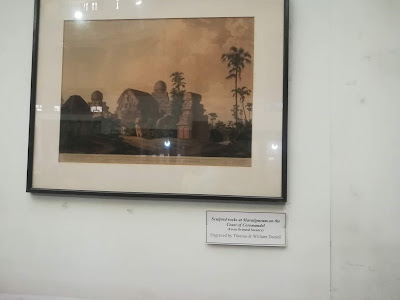CSE's stark facts on Govt.'s misplaced Solar policy
A classic case FDI’s sordid state of
affairs in Renewable source of Energy
A
detailed study done by Centre for Science and Environment, New Delhi over past few years
highlight a major chink in the Government’s logic of FDI benefiting the
supposed sector gaining FDI- in this case Renewable energy sector Solar energy.
The
industry under study is renewable- Solar power Under Ministry of New and
renewable Energy the industry has seen an unstable policy support to the
manufacturers.
Considering
the Solar energy’s efficiency standards India’s major chunk of investment has
been in Crystalline Silicon Photovoltaic cells manufacturing whereas the less
expensive in comparison thin film cells have overtaken the current
installations. Why?
Capturing few snippets from the DTE report-
- No proper pricing support policy for the Indian Manufacturers in India
- Back door entry of US Thin Film solar cell manufacturers when India is glut with Polycrystalline solar module makers
- Foreign firms' Solar Thin films imports allowed to support State Govt. projects Like Rajasthan and Gujarat while Crystalline Silicon cells manufacturers had to close shop irony Indian firms have transformed from exporters to Net importers.
- The irony is Ministry of New and Renewable Energy is fighting to save the Crystalline Silicon crystals manufacturers from closing shop through litigation's with WTO against dumping from China and US while JNNSM (Jawaharlal Nehru National Solar Mission) is giving access to large scale imports of Thin Film solar cells- case of give with one hand and take with other hand
- So FDI in this sector has favored whom? Domestic or Govt. (State or Centre)
- Indian firm’s distress calls has not made Indian Government any smarter from its ill conceived policies while China has offered varying and huge incentives for producing in excess of 1GW solar cells while India’s installed capacity is 2900 MW including solar cells (more shown in the link given below by downtoearth.org)
- The extent of support offered by Chinese Government is so blatantly an unfair trade practice that they are selling their Photovoltaic cells at sale price lower than their manufacturing cost in India; completely decimating Indian sector
- US has been able to create jobs by asking the Indian importer to source parts from US again Wow what a idea Sirji!
Press Release: The US is using climate
finance to kill the Indian solar panel industry: CSE
17
August 2012
·
US Exim Bank and the Overseas Private Investment Corporation
offering low-interest loans to Indian solar project developers on the mandatory
condition that they buy the equipment, solar panels and cells from US companies
·
This has put 80 per cent of India
·
Unethical practice, says CSE. Will do more harm than good to
domestic industry
As the nation's ambitious Solar Mission's
first phase draws to a close next year, CSE is analysing the state of renewable
energy resources and infrastructure in India
and the country’s preparedness to meet the Mission
goals.
Explains Chandra Bhushan, CSE's deputy
director general: "Fast start financing is a US $30 billion fund set up
under the United Nations Framework Convention on Climate Change. The fund,
adopted at the Copenhagen
He adds: "The US
The Government of India has been
aggressively promoting solar power projects since 2010 as part the National
Action Plan on Climate Change. The Jawaharlal Nehru National Solar Mission
(JNNSM), plans to install 22,000 MW of solar energy by 2022 by using a mix of
feed-in-tariffs and Renewable Purchange Obligations (RPOs). Within three years,
2009-12, India
Though the JNNSM mandates a domestic
content requirement - meaning all projects must buy domestically manufactured
solar equipment -- it does it only for the crystalline PV technology and not
for the thin-film PV technology.
Taking advantage of this loophole – say CSE
researchers - the US Exim Bank and OPIC have been offering very low rates of
interest (about 3 per cent) and a long repayment schedule (up to 18 years) to
Indian solar project developers on the condition that they buy thin-film panels
manufactured by US companies. Loans from Indian banks come with an interest
rate of close to 14 per cent or more. This has skewed the market completely in
favour of thin-film panels imported from US despite the fact that thin-film has
lower efficiency when compared to crystalline panels. Close to 60 per cent of
the panels installed in India
According to the US Department of State
reports of the year 2010 and 2011 on fast start financing, an amount totalling
US $248.3 million has been disbursed by the US Exim Bank and the OPIC for
grid-connected solar plants in India
As recently as on July 19, US Exim Bank
authorised two other loans totalling US $57.3 million to Solar Field Energy Two
Private Limited and Mahindra Surya Prakash Private Limited, respectively,
"to finance the export of American solar panels and ancillary services to India US government release these “transactions will
support 200 US jobs at First
Solar's manufacturing facility in Perrysburg ,
Ohio
The US US US
"The misuse of fast start financing by
the US US
has managed to turn it into a game where funds registered as climate funding is
given out as loans to projects that promise to buy equipment made in the US
Says Kushal Yadav, head of CSE's Renewable
Energy team: "Interestingly, the US
government has put anti-dumping duties on solar equipment imported from China because of the alleged subsidies that China US
is engaging in a similar practice in India
References-
For more on this, please contact Kushal Yadav on
9810867667 / kushal@cseindia.org
For more insight on above solar industry kindly
visit http://www.downtoearth.org.in/content/sunshine-sector-loses-sheen?page=0,1

Comments